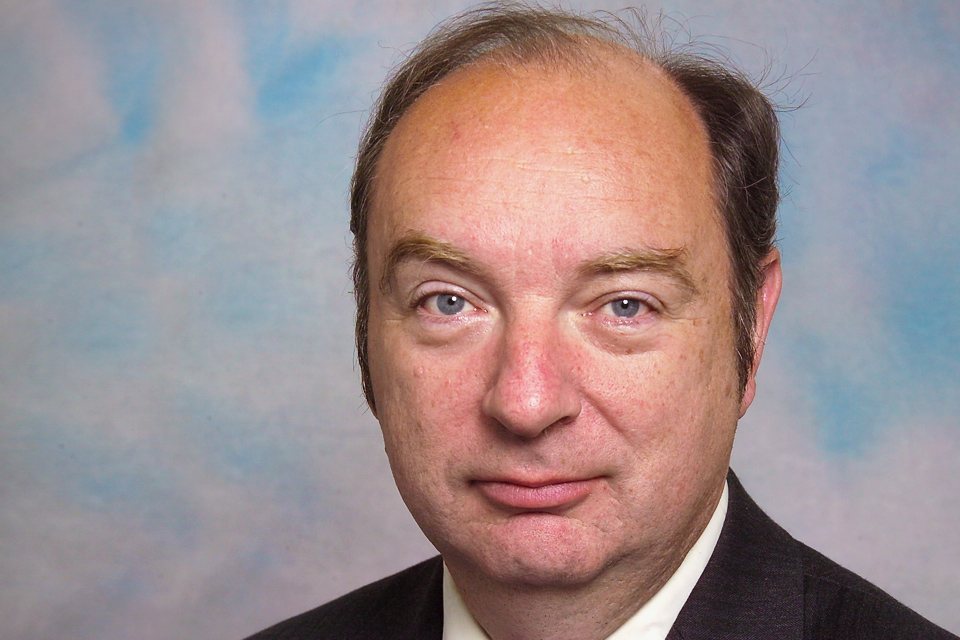Suffolk Sustainable Transport Forum
Speech by Norman Baker MP, Parliamentary Under-Secretary of State for Transport.

Suffolk Sustainable Transport Forum
Transcript
Thank you for inviting me to talk to your forum today. It seems fitting that I should be with you virtually to discuss our collective goals of creating growth whilst cutting carbon at the local level.
I welcome the development of the Suffolk Sustainable Transport Forum and the involvement of Hutchison Ports UK, BT and Suffolk County Council. This is a great example of joint working, both across business sectors and also between business and local government. I also understand that the New Anglia Local Enterprise Partnership is also working across the private and public sector on their Green Economy Pathfinder.
Low carbon transport plays a key role in the wider drive towards sustainable economic growth, this is as true on the local level as it is on the national and international level.
That is why we allocated a new £600 million Local Sustainable Transport funding for local projects which create growth and cut carbon.
As you will be aware, Suffolk received £5 million for their Lowestoft Local Links project. This package includes improved pedestrian and cycle infrastructure, increased bus services, improvements to transport interchange hubs, enhanced travel planning provisions, and more. I was pleased to visit Lowestoft this time last year and get a sense of how this will be transforming access to and around the area.
We are also investing more widely in green public transport, for example through our national programme of rail electrification or the £30 million Green Bus Fund. Each year, every low-carbon bus outside London saves around 22 tonnes of CO2 compared with its diesel equivalent. Anglian Bus Ltd in Suffolk has been awarded £624,000 to fund 13 low carbon buses, and I look forward to seeing these roll out of the garages and on to the roads, they offer a more comfortable, more reliable and much greener experience for bus passengers.
Businesses have been closely involved in the planning and delivery of Local Sustainable Transport projects in Suffolk, and indeed across the 96 projects in 77 authorities that are going ahead because of the Fund.
Businesses are doing this because they realise the benefits of an integrated transport system that allows easy access to workplaces; because of the reduced absenteeism that results from employees choosing a more active lifestyle; and because of the transformation of the local urban and rural environments that can result from an increased uptake of sustainable modes of travel.
They are also showing support by embracing alternatives to travel in their day-to-day office environments. Endorsing the use of technology, such as video speeches and teleconferencing, and supporting greater uptake of flexible working amongst staff can bring about an array of benefits. Reducing business flights and consolidating office space can lead to notable cost savings. And both research and experience have shown that employee productivity and wellbeing can be improved when we take a more flexible approach to the working day.
The Olympics proved a challenge and opportunity in this regard. Businesses and government understood that transport would be much busier than usual and that change was necessary. So employees came in to work and left for home earlier to escape the rush hour, they hopped on their bikes rather than hopping on the tube to escape the underground, or they stayed home and logged on rather than getting behind the wheel of a car, escaping the office altogether. The result was not just one of the most successful Games in history, but also one where transport was universally praised.
Of course the department is also investing more widely in transport infrastructure in the region, for example through the £22 million transport package for Ipswich. This is an innovative and exciting programme of work that will see Ipswich town centre become a thriving sustainable transport hub, and has the potential to transform the way people travel in and around Ipswich. Indeed, residents are already benefiting from new traffic management measures and cycle and pedestrian facilities, facilitating access to Suffolk College.
But it’s not just about providing policies and funding for transport. We also need to invest in relationships. And that is why I support fora like this which discuss common challenges, build partnerships, share best practice and generate solutions.
So thank you for inviting me, and good luck with your work.